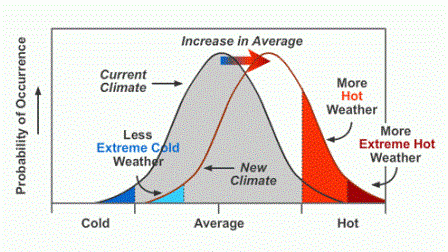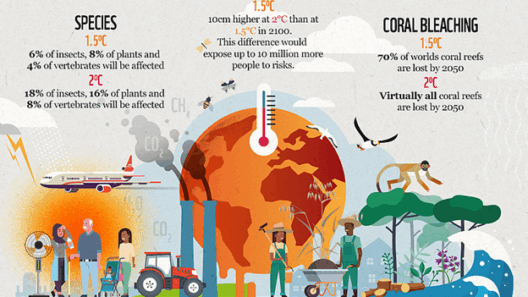As we traverse the intricate landscape of climate change, it’s intriguing to ponder: how do you say ‘global warming’ in Spanish? The phrase translates to ‘calentamiento global,’ a term that encapsulates a significant and urgent issue confronting our planet. This small linguistic journey opens a window into the broader implications of climate change across different cultures, as the term evokes varied perceptions, policies, and responses tied to environmental challenges.
‘Calentamiento global’ is not merely a translation; it symbolizes the universal acknowledgment of rising temperatures precipitated by human activity. The Global Climate Crisis is an intricate tapestry woven from diverse national narratives, cultural contexts, and historical experiences. The way we communicate about climate change in different languages can shape public perception and influence action.
Across the Spanish-speaking world, the phrase ‘cambio climático’—or climate change—carries significant weight. From the bustling streets of Madrid to the vibrant markets of Buenos Aires, the term evokes a spectrum of reactions ranging from concern to indifference. But what factors contribute to these varying perceptions? In many cultures, the interplay of socio-economic conditions, education levels, and local environmental issues significantly shapes how climate change is viewed. This disparity begs the question: how much do cultural narratives influence the urgency with which communities address climate change?
In Latin America, where natural disasters linked to climate change are becoming increasingly common, there is a palpable sense of urgency. Countries like Bolivia and Peru regularly experience the consequences of glacial retreat and altered weather patterns, underscoring the pressing need to adopt preventative measures. Conversely, in regions where climate impacts are less visible, such as in parts of Spain or Mexico, the urgency may not resonate as strongly. Herein lies a challenge: bridging the gap between awareness and action. How do we awaken a sense of responsibility in those who may not yet feel the imminent threat of climate change?
The communication of climate change is further complicated by linguistic nuances. For instance, while ‘calentamiento global’ focuses on temperature increases, it may not fully encapsulate other critical aspects like species extinction, ocean acidification, or socio-economic disparities. Engaging communities in richer, more nuanced discussions about ‘cambio climático’ offers an opportunity for activists and policymakers to drive home the multi-faceted impacts of environmental degradation.
Moreover, the role of media in various Spanish-speaking countries cannot be overstated. In Spain, a country grappling with extreme weather phenomena including severe droughts and floods, public discourse around climate change is frequently highlighted in the news. Yet, sensationalist reporting can at times overshadow the more profound scientific discussions needed to foster understanding. In contrast, in some Latin American nations, environmental issues may only make headlines during catastrophic events. Thus, the challenge for media outlets becomes fostering consistent dialogue around climate change, rather than limiting it to episodic coverage.
It’s also essential to consider how indigenous languages and cultures contribute to the discourse on climate change. In many Spanish-speaking regions, indigenous communities possess a rich understanding of their local ecosystems. Their insights can offer valuable perspectives on sustainable practices and climate resilience. For instance, the Quechua word for ‘climate’—‘q’ankha’—embodies a holistic view of the relationship between humans and the environment. This traditional knowledge can enhance contemporary climate action strategies, blending indigenous wisdom with modern scientific understanding. How can we leverage these unique perspectives to enrich international dialogues on climate change?
On the global stage, international agreements such as the Paris Accord strive to unify disparate countries under a common goal of reducing emissions. Yet, the effectiveness of these agreements hinges on the political will of individual nations and their ability to enact transformational policies. In some Spanish-speaking countries, political dynamics may favor short-term economic benefits over long-term sustainability. This creates a complex environment where climate action is sparingly prioritized among competing interests. The challenge now is reconciling these priorities with environmental accountability.
In response to this pressing crisis, grassroots movements across Spanish-speaking nations are gaining traction. Environmental activists are leveraging social media platforms in innovative ways, galvanizing a younger generation to emphasize the importance of climate advocacy. Campaigns utilizing hashtags like #CambioClimático and #CalentamientoGlobal are becoming more commonplace, reacquainting audiences with the urgency of addressing climate change. These movements demonstrate the potential for community-driven initiatives to not only raise awareness but also mobilize action. But this raises another enticing question: how can we harness the power of digital communication to shape a more informed public discourse surrounding climate change?
As we contemplate the global warming dilemma, it remains imperative to connect linguistic and cultural threads to foster a more cohesive understanding of climate change. Cultural enthusiasm might serve as a catalyst for transformative change, elevating the narrative beyond mere translation. ‘Calentamiento global’ extends beyond our linguistic borders to touch every corner of this planet, challenging us to unite in the face of a common threat. While it may initially appear as a simple translation, it packs within it the call for global solidarity—a plea for action, collaboration, and responsibility. How do we move forward, not just in our words, but in our deeds? The answer lies in bridging divides, learning from diverse perspectives, and committing to a sustainable future for all.






